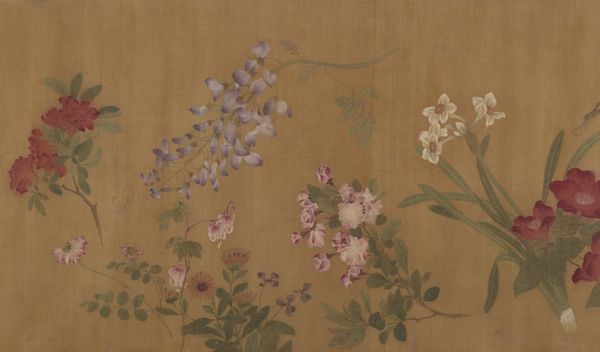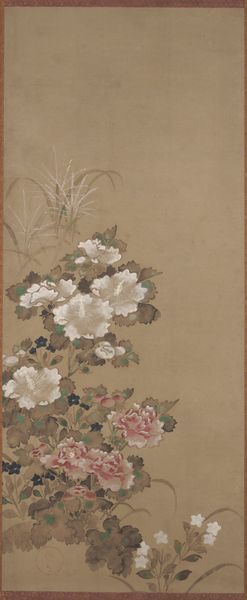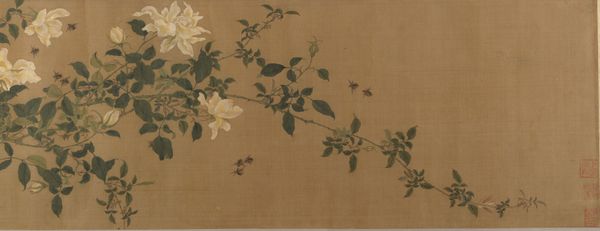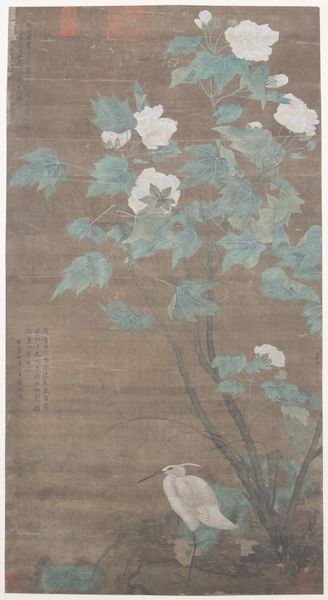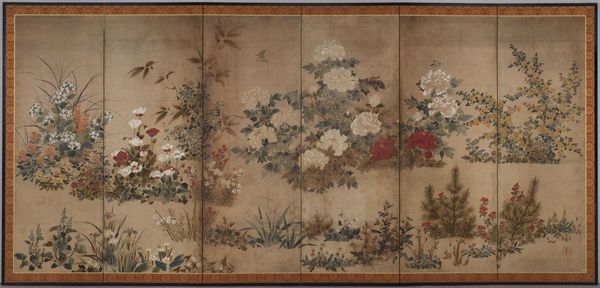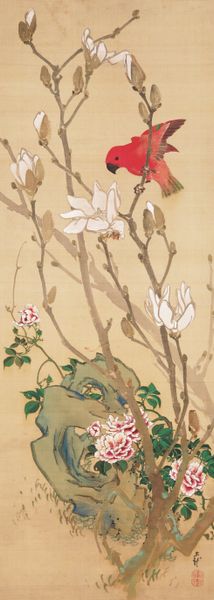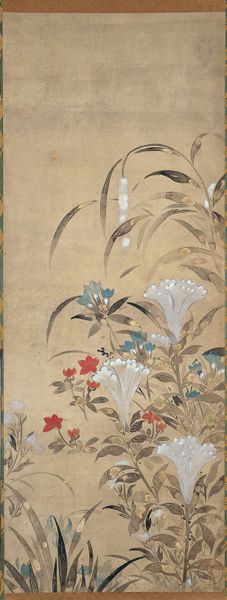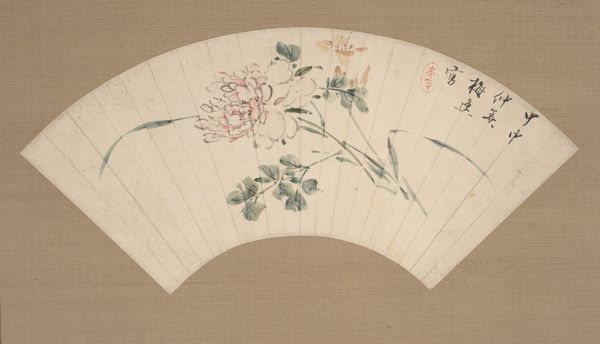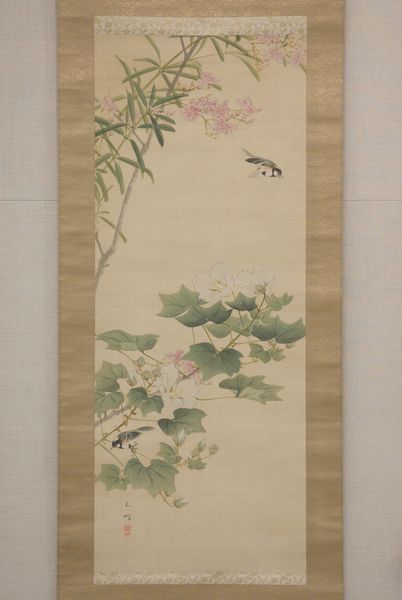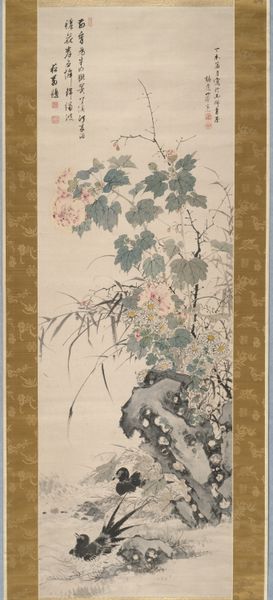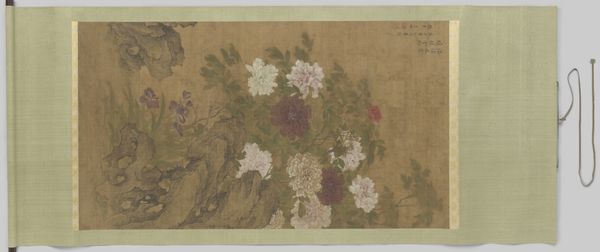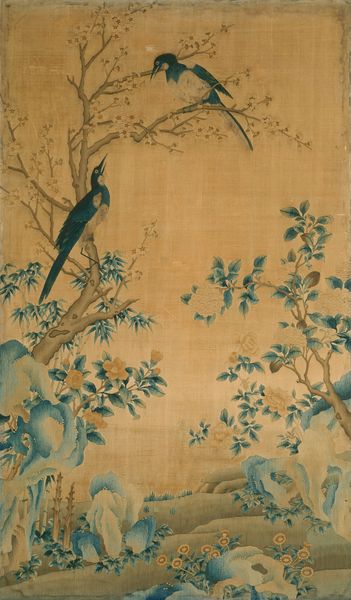
Dimensions: 16 1/2 x 255 1/2 in. (41.9 x 649 cm)
Copyright: Public Domain
Yun Shouping painted "One Hundred Flowers" on silk, and the image is replete with symbols deeply rooted in Chinese culture. Plum blossoms, camellias, magnolias, and peonies emerge, each a carrier of potent meaning. The plum, first, is the harbinger of spring, a symbol of resilience, and of purity. The camellia, a celebration of longevity. The magnolia stands for purity and nobility. The peony, often hailed as the "king of flowers," embodies wealth and honor. Observe how these floral motifs, though rendered in a distinctly Chinese style, echo similar themes found in European still life paintings. The fleeting beauty of blossoms, the cycle of life and death—a universal meditation on mortality, memento mori. Consider the lotus flower in Buddhist art, its roots in murky waters yet blossoming into pristine beauty, a parallel to the human spirit's transcendence. In Yun Shouping's scroll, this is not merely a collection of flowers, but a symphony of cultural memory, a rich tapestry of symbols, each resonating with layers of meaning, inviting us to reflect on the perennial themes of beauty, life, and the passage of time.
Comments
No comments
Be the first to comment and join the conversation on the ultimate creative platform.
